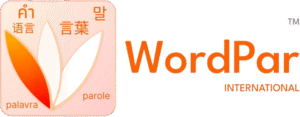
SUMMARY
Simultaneous interpretation requires strong cognitive skills, multitasking, and stress management, with regular breaks to prevent mental fatigue. It demands both linguistic expertise and mental resilience
Simultaneous interpretation is very complex skill that puts great demands on the cognitive and multitasking capabilities of the linguist. An interpreter must listen and comprehend what is being said in one language, then encode it in another language. There is not just a transition from a source language to a target language, a challenge to the linguistic competence, but also a strain on the cognitive functioning, processing factual and linguistic data all at once.
The level of concentration required in simultaneous interpretation is high. Interpretation involves responsibility of a high level, errors are unforgivable, as important matters lie in the hands of the linguist who is translating. The reticular activating system (RAS) of the interpreter is put under great stress in a conference of a few hours, and to think of day-long sessions, is stressful to unimaginable proportions.
Switching between languages rapidly is equally stressful. It is like a switch being continuously being turned on and off. In addition to linguistic variance, there is the additional task of multitasking.
In addition to this, there is the pressure of uncertainty and anxiety because there is delayed feedback. One does not know the outcome of one’s speech and the impact it has had till one has finished speaking and the other party has heard the reverse translation from the audience or the interpreter of the other directional language pair.
The cerebral overload is one of the most demanding aspects of this profession. Interpreters, especially those performing it simultaneously, may often experience brain freeze and must take adequate rest, just like one takes care of a sore muscle while exercising. This is the reason simultaneous interpretation of long durations should divide between two linguists alternating every hour.
Rest and recovery are only one step in taking care of the mental health of the interpreter.
Stress and anxiety are natural outcomes of the onslaught and must be treated accordingly. The overload on the mental faculties must also be adequately addressed and one must look for signs of fatigue and burnout.
Professional language translators make good simultaneous interpreters. Interpretation services call for professional linguistic capabilities besides sharp acuity and cerebral capacity.

A medical translation company ensures precision through specialized workflows, expert translators, and compliance with local regulations.

WhatsApp us